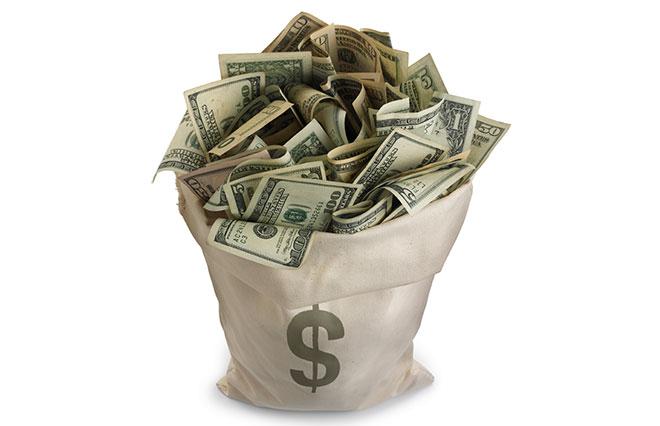By issuing bonds to finance its stock buyback, Apple will avoid paying $9.2 billion in taxes to the U.S. government, making its decision to take on debt a "no-brainer."
Despite having nearly $150 billion in cash and investments, Apple decided that taking on debt would be the best way to fund its $100 billion capital return program. That's because most of Apple's cash is held overseas, and returning it to the U.S. to buy back shares and issue a dividend would require repatriation taxes to be applied.
Apple's borrowing strategy will instead allow the iPhone maker to save the $9.2 billion it would otherwise be required to pay in taxes according to figures compiled by Moody's Investment Services and reported by Bloomberg. The estimates led Gerald Granovsky, senior vice president at Moody's, to refer to Apple's strategy as a "no-brainer."
Currently, about $100 billion of Apple's $145 billion is held overseas.
Apple announced last week that it plans to spend $100 billion in cash by the end of calendar year 2015 on its capital return program. Part of it will involve a 15 percent increase in dividend payouts, but the bulk of the money will go toward a share repurchase program, said to be the largest one in history.
But with Apple's $145 billion in cash, some were surprised that the Cupertino, Calif., company opted to borrow. This week, it sold $17 billion in debt in Apple's first bond offering since 1996. It was a dollar amount record for a U.S. corporate offering.
For its part, Apple has noted that it paid $6 billion in federal corporate income taxes in fiscal 2012. Spokesman Steve Dowling noted that Apple is one of the largest, if not the largest, corporate income taxpayers in the country.
Apple Chief Financial Officer Peter Oppenheimer also laid out some of the benefits to his company in tapping the U.S. debt markets. Speaking during Apple's quarterly earnings conference call last week, he said incorporating debt into the capital structure would offer access to attractively priced capital, would reduce Apple's overall cost of capital, and would be an efficient use of the company's balance sheet.
"We will maintain sufficient domestic liquidity to grow the business and execute capital expenditures and acquisitions," Oppenheimer said. "The program announced today will result in returning an average of $30 billion annually to shareholders."
 Neil Hughes
Neil Hughes







-m.jpg)






 Charles Martin
Charles Martin
 Marko Zivkovic
Marko Zivkovic
 Andrew Orr
Andrew Orr
 Amber Neely
Amber Neely

 William Gallagher and Mike Wuerthele
William Gallagher and Mike Wuerthele











105 Comments
Alternative phrasing: "Apple avoids stupid move that would cost an extra $9.2 billion."
Tax avoidance reported as "a good thing". No wonder your deficits will never be reduced...
Ain't the US financial system grand! Apple is not allowed to repatriate its cash, instead it:
1. Still collects 1% a year on its offshore cash.
2. Pays 2% on its debt.
3. Pays underwriting fees to the investment banks.
4. But wait, there is more! 2 and 3 are tax deductible items, resulting in a transfer of wealth from the tax payer to said investment banks (which, I am guessing, are holding most of the bonds also).
[quote name="red_kola" url="/t/157345/apples-bond-offering-will-allow-it-to-avoid-9-2b-in-us-taxes#post_2321102"]Tax avoidance reported as "a good thing". No wonder your deficits will never be reduced... [/quote] This is why the USA is in debt and the economy is in the toilet. The whole system is insane. This is the "self regulating" economy. Bunch of BS. Why exactly should I love my country for being obsessed with self-destructive, antisocial, sociopathic, greedy stupidity?
Ain't the US financial system grand! Apple is not allowed to repatriate its cash
It is allowed. It just doesn't want to pay the tax.